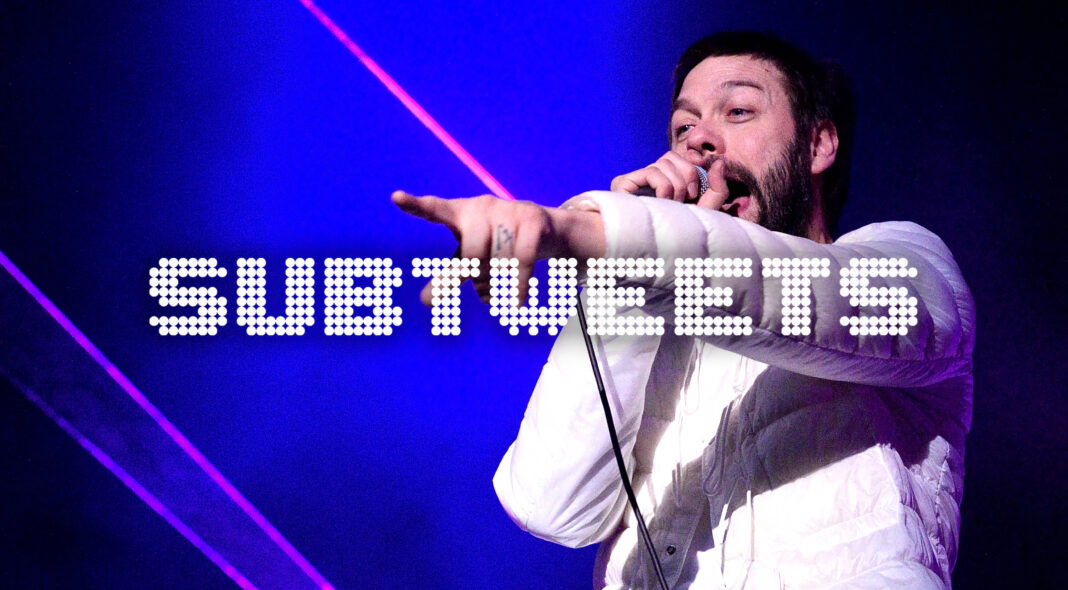Anybody who has experienced domestic violence, whether personally or as witness, will know that it’s an experience that never truly leaves you. Unless you have been there yourself, it is difficult to truly understand how it feels to deal with the feelings that a high-profile case stirs inside you. When the case involves music, a world so many look to for escape, that struggle can often run that little bit deeper.
When Kasabian announced the departure of frontman Tom Meighan, it was clear that something unpleasant lay below the surface, but the news of his admission of spousal assault still came as a shock. While smug industry types made snarky, unhelpful jokes about the unsurprising nature of a ‘lad band’ member committing violence, fans who had been drawn to their undeniably dynamic energy and stadium hooks were left with some complex decisions to make. Some felt let down by the frontman’s actions and applauded the rest of Kasabian for their no-tolerance stance; others speculated the truthfulness of the case, despite the video footage and Meighan’s guilty plea. Further still were fans who felt misled by the band’s initial statement which, dealing in legally-permissible vagueness, seemed to suggest that Meighan was the victim of some unforeseen misfortune, a man to be held in sympathy.
Of these reactions, a dominant problematic discourse arose. Noting Kasabian’s 20 year brotherhood, many fans expressed less displeasure for the crime at hand than the idea that the rest of the group has abandoned Tom in his hour of need. Regardless of what he had done, he was suffering too, and the lack of loyalty from his bandmates was unforgivable. Comments underneath the band’s official statement frequently speak of ‘throwing Tom under the bus’, of ‘kicking him when he’s down’, or of needing to accept that they should sooner split entirely than try to carry on without their core member. “We all make mistakes”, was an enduring mantra; “with friends like these, who needs enemies” another.
As we have seen from the #MeToo movement’s exposure of numerous abusive bands and artists, the process of fan grief, denial and listening-dilemma is a complex one. Many of the Kasabian fans voicing blame-shifting opinions were undoubtedly caught in the ‘denial’ phase of their shock, forgetting the larger topic at hand in their rush to protect their favourite singer. These fans would likely never think of themselves as abuse-apologists, but still, the prioritisation of inter-band loyalty over moral justice mirrors the worryingly dismissive attitude towards domestic violence that still exists in this country. It’s an attitude that sees friends protect friends, stopping them from calling out the warning signs or intervening when a situation has clearly gone too far. It’s an attitude that asks victims “why did you stay?” or “what did you do to make them angry?”, instead of recognising that domestic violence is a much more habitual cycle of power and control. It’s an attitude that coerces survivors into forgiveness, convincing them that things will be better.
In 2019 alone, an estimated 2.4 million adults in the UK are thought to have been victims of domestic violence. This figure is suspected to have increased by at least 20% under coronavirus lockdown conditions. There is likely more to Meighan’s story than any of us will ever know, but given the circumstances, a plea for his bandmates public solidarity feels worryingly misguided. Whether you believe in longer-term retribution or not, allowing him to remain in the band at this time would have shown the world that abuse can be swept under the carpet in the name of entertainment, that famous men can maintain their platforms without actively working to deserve them. Statistically speaking, there will be Kasabian fans who are survivors themselves, ones for whom the 200-hours of community service handed to Meighan will recall their own feelings of injustice and despair. But at least those people might be able to take some small comfort from watching the band do the right thing, putting aside their own alliances to advocate for a no-tolerance policy.
No statement that Tom Meighan could have made under the circumstances would quite be enough to excuse what he has done, but his acknowledgement of his crime is an important step. In being honest about his mental health struggles and accepting his guilt, he can hopefully move forward from this moment with remorse for his actions, a commitment to self-improvement and an understanding of why he had to lose what he had in order for his band to show their fans a better example than he provided. Some might call it cancel culture; others prefer accountability.
Fandoms can blind the best of us to make excuses for some pretty shoddy behaviour. To ‘cancel’ everyone who has ever committed a lapse of judgement would be to lose great swathes of the entertainment industry overnight, but if we’re ever going to achieve a safer society for everyone, we need to recognise that the people we love can’t be awarded a free pass. In the case of Tom Meighan, fans can decide for themselves what level of forgiveness they are willing to provide, but they may want to consider exactly where their larger empathies should lie.







